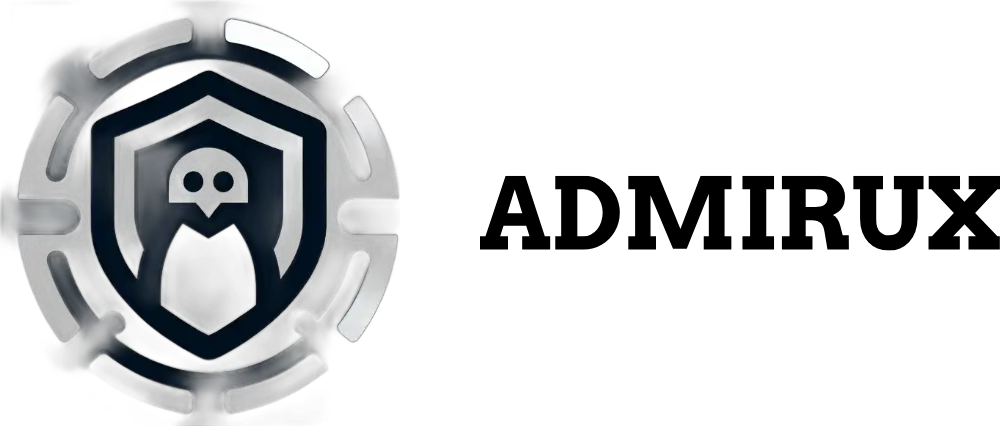
Whistleblowers: Guardians of Truth in the Shadows
In a world where powerful organizations and governments often operate behind a veil of secrecy, whistleblowers emerge as the guardians of truth, shining a light on corruption, fraud, and unethical practices. These individuals take on immense personal risk to expose wrongdoing, often sacrificing their careers, reputations, and even personal safety. But when are whistleblowers most likely to be hired, and what drives them to take such bold actions? In this blog post, we will explore the role of whistleblowers, examine real-world examples, and provide resources for those who may find themselves in a position to blow the whistle on unethical behavior.
What is a Whistleblower?
A whistleblower is someone who exposes information or activities within an organization that are deemed illegal, unethical, or not in the public interest. These individuals can be employees, contractors, or any other members of the organization who have access to the incriminating information. Whistleblowers typically report their findings to authorities, regulatory bodies, or the media.
Whistleblowing is not a new concept; it has been a critical component of accountability and transparency in both public and private sectors for centuries. However, the digital age has amplified the impact of whistleblowers, making it easier for them to gather, store, and disseminate information. This increased capacity for exposure has also heightened the risks involved, making whistleblowers a target for retaliation.
When Are Whistleblowers Most Likely to Be Hired?
Whistleblowers are not typically “hired” in the traditional sense. Instead, they are often existing employees or affiliates of an organization who become aware of wrongdoing and feel compelled to expose it. However, there are scenarios where whistleblowers may be brought into an organization or encouraged to come forward:
Corporate Restructuring and Internal Audits: During corporate restructuring or internal audits, companies may hire external auditors or consultants who, in the course of their work, discover illegal or unethical activities. These individuals may then act as whistleblowers, either by reporting their findings internally or going public if the organization fails to address the issues.
Government Oversight: In government agencies, whistleblowers may be more likely to emerge during periods of increased oversight or regulatory pressure. For example, when a new administration comes into power or when a government agency is under scrutiny, employees may feel more empowered or compelled to expose misconduct.
Media Investigations: Journalists and media outlets sometimes hire experts or insiders to help them investigate organizations. These hired individuals may gather evidence that leads to whistleblowing, especially if they uncover significant wrongdoing.
Nonprofit and Advocacy Groups: Nonprofit organizations and advocacy groups focused on transparency, human rights, or environmental issues may hire investigators or researchers who, during their work, discover illegal or unethical practices. These individuals may then choose to blow the whistle.
Legal Investigations: Lawyers and legal teams working on cases involving large corporations or government agencies may uncover evidence of wrongdoing during their investigations. In some cases, these legal professionals or their clients may act as whistleblowers.
Real-World Examples of Whistleblowing
Whistleblowing has played a critical role in exposing some of the most significant scandals in recent history. Here are a few notable examples that highlight the impact and consequences of whistleblowing:
Edward Snowden and the NSA Surveillance (2013): One of the most famous whistleblowers of the 21st century, Edward Snowden, was a former contractor for the National Security Agency (NSA). In 2013, he leaked classified documents revealing the extent of global surveillance programs conducted by the NSA and its allies. Snowden’s revelations sparked a worldwide debate about privacy, government overreach, and the balance between security and civil liberties. He currently resides in Russia, where he was granted asylum to avoid prosecution in the United States.
Daniel Ellsberg and the Pentagon Papers (1971): Daniel Ellsberg, a former military analyst, leaked the Pentagon Papers in 1971, a classified study of the U.S. government’s decision-making process during the Vietnam War. The documents revealed that the government had systematically lied to the public and Congress about the war’s progress. Ellsberg’s actions led to a landmark Supreme Court case on freedom of the press and contributed to the growing anti-war sentiment in the United States.
Sherron Watkins and Enron (2001): Sherron Watkins was a Vice President at Enron who warned the company’s CEO, Kenneth Lay, of accounting irregularities that were being used to hide the company’s financial losses. Although her internal whistleblowing efforts did not immediately prevent the collapse of Enron, her testimony and evidence played a crucial role in exposing one of the biggest corporate frauds in history, leading to the eventual downfall of the company and the imprisonment of several top executives.
Chelsea Manning and the Iraq and Afghanistan War Logs (2010): Chelsea Manning, a former U.S. Army intelligence analyst, leaked a massive trove of classified military documents to WikiLeaks, revealing details about the wars in Iraq and Afghanistan. The leaks included videos of military operations, diplomatic cables, and reports that exposed human rights abuses and questionable practices by U.S. forces. Manning was arrested, court-martialed, and sentenced to 35 years in prison, though her sentence was later commuted by President Barack Obama.
Frances Haugen and Facebook (2021): Frances Haugen, a former product manager at Facebook, became a whistleblower when she leaked internal documents and testified before Congress about the company’s practices. Haugen revealed that Facebook was aware of the harmful effects of its platform on users, particularly teenagers, but prioritized profit over safety. Her revelations sparked widespread criticism of Facebook and renewed calls for regulation of social media platforms.
The Risks and Rewards of Whistleblowing
Whistleblowers often face significant risks for their actions. Retaliation from employers, legal consequences, and damage to personal and professional relationships are common challenges. Despite legal protections in many countries, including the United States’ Whistleblower Protection Act, the reality is that whistleblowers often endure long and difficult battles to defend their actions.
However, whistleblowing can also bring rewards, both in terms of personal satisfaction and, in some cases, financial compensation. In the United States, the False Claims Act allows whistleblowers to receive a percentage of any money recovered as a result of their disclosures. This can sometimes amount to millions of dollars. Additionally, some whistleblowers find a sense of moral fulfillment in knowing that their actions have contributed to the public good.
Resources for Whistleblowers
For those considering blowing the whistle on illegal or unethical practices, there are several resources available to help navigate the process and protect oneself:
Government Agencies: In the United States, whistleblowers can report wrongdoing to various government agencies, including the Securities and Exchange Commission (SEC), the Occupational Safety and Health Administration (OSHA), and the Office of Special Counsel (OSC). These agencies provide protections and avenues for reporting without fear of retaliation.
Legal Representation: Consulting with an attorney who specializes in whistleblower law is often a crucial step. Legal experts can help navigate the complex legal landscape, ensure that disclosures are protected under the law, and advise on the best course of action.
Whistleblower Protection Programs: Many countries have whistleblower protection programs that offer legal protections and, in some cases, financial rewards. In the United States, the Whistleblower Protection Act and the Dodd-Frank Wall Street Reform and Consumer Protection Act are key pieces of legislation that provide protections for whistleblowers.
Nonprofit Organizations: Several nonprofit organizations offer support and resources for whistleblowers. The National Whistleblower Center, the Government Accountability Project, and Public Employees for Environmental Responsibility (PEER) are just a few examples of organizations that provide guidance, advocacy, and legal support for whistleblowers.
Media Outlets: In some cases, whistleblowers choose to go directly to the media to expose wrongdoing. Working with investigative journalists can be an effective way to bring attention to an issue, though it also carries risks, especially in terms of legal repercussions and public scrutiny.
Anonymous Reporting Platforms: For those who wish to remain anonymous, there are platforms like WikiLeaks or SecureDrop that allow whistleblowers to submit information securely and anonymously. These platforms have been used in some of the most significant leaks in recent history, though they also come with their own set of risks.
The Ethical Implications of Whistleblowing
Whistleblowing raises complex ethical questions. On one hand, whistleblowers play a critical role in holding organizations accountable and protecting the public interest. They often act out of a sense of moral duty, driven by the belief that exposing wrongdoing is the right thing to do.
On the other hand, whistleblowing can have serious consequences for the individuals involved, as well as for the organizations they expose. There is often a fine line between protecting the public interest and causing harm to innocent parties. Additionally, not all whistleblowers act out of pure motives; some may be driven by personal grievances or a desire for revenge.
As society continues to grapple with these ethical dilemmas, it is essential to strike a balance between encouraging transparency and accountability while also protecting the rights and interests of all parties involved.
Conclusion
Whistleblowers are the unsung heroes of transparency and accountability, often risking everything to expose wrongdoing and protect the public interest. While they are not typically “hired” in the traditional sense, there are scenarios where whistleblowers may be brought into an organization or encouraged to come forward, particularly during periods of increased oversight, legal investigations, or media scrutiny.
The real-world examples of Edward Snowden, Daniel Ellsberg, Sherron Watkins, Chelsea Manning, and Frances Haugen demonstrate the profound impact that whistleblowers can have on society. Their actions have exposed corruption, changed government policies, and sparked important public debates.
For those who find themselves in a position to blow the whistle, there are numerous resources available to help navigate the process and protect oneself. Whether through legal representation, nonprofit organizations, or anonymous reporting platforms, whistleblowers have options to ensure their voices are heard.
In a world where truth is often obscured by power and influence, whistleblowers play a vital role in bringing transparency to the shadows. Their courage and commitment to justice serve as a reminder that even in the darkest of times, there are those who are willing to stand up for what is right.
Share via:

